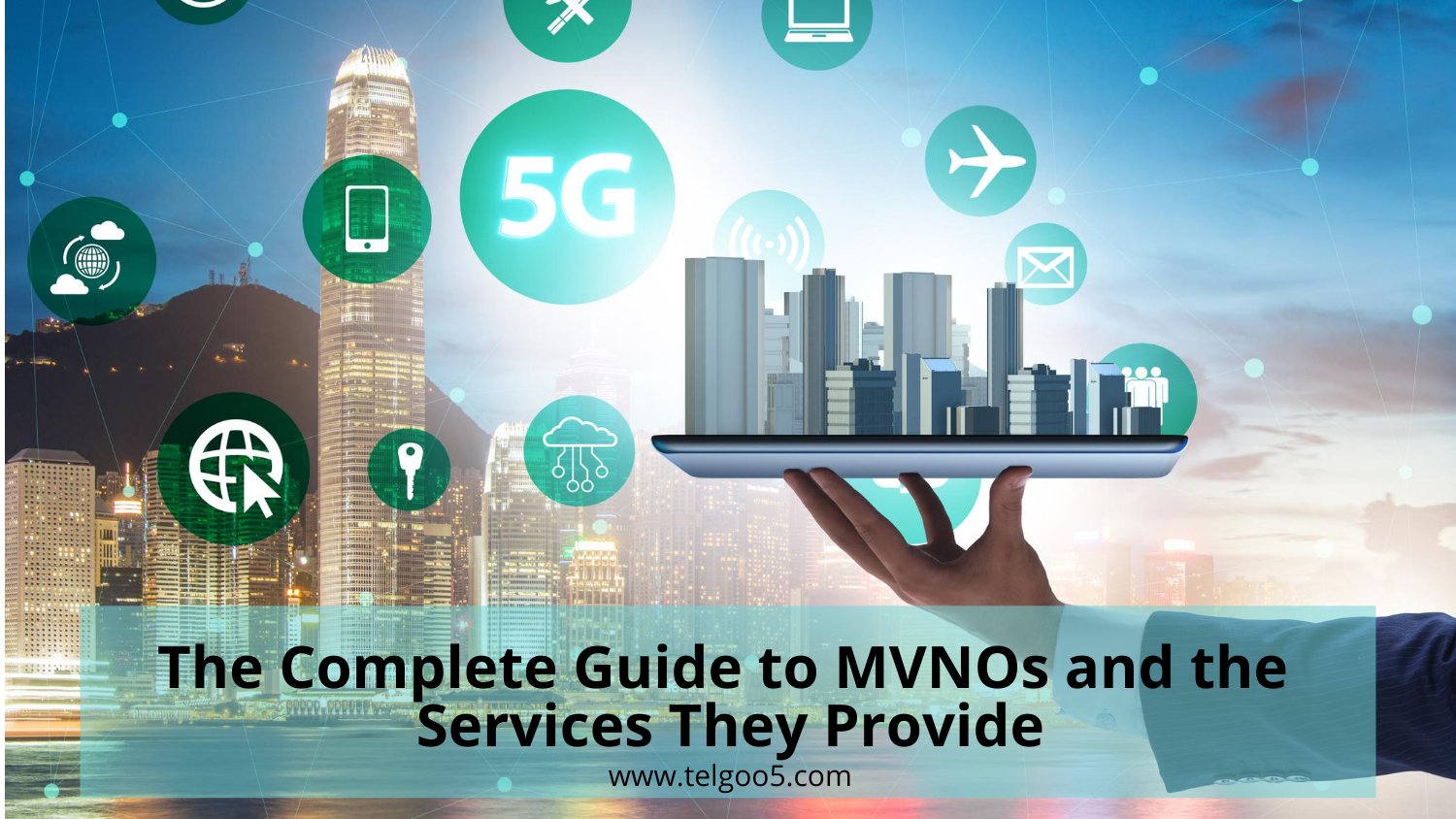
The Complete Guide to MVNOs and the Services They Provide
Introduction to MVNO
Think of a large Mobile Network Operator like Sprint. Sprint owns cell towers and antennas, and directly sells network connectivity to users. Then, think of a smaller network like Tello. Tello does not own network infrastructure. Instead, it buys “space” in bulk from Sprint and resells to users. Tello is an MVNO.
MVNO stands for Mobile Virtual Network Operator. MVNO is a network operator that buys access from an MNO, and then resells to consumers. The first MVNO was launched in the UK and quickly became popular because of cheaper rates and better targeting.
MVNOs are partly or fully owned by MNOs. In other words, while some MVNOs have exclusive agreements with single MNOs, others buy network access from multiple MNOs.
Different Types of Services Offered by MVNOs
The services provided by an MVNO are dependent on which kind it is. Here are the four main types of MVNOs.
Full MVNOs
The only thing that full MVNOs get from an MNO is connectivity, that is, access to network antennas. Full MVNOs develop and manage their core network infrastructure and billing systems. They manufacture their own SIM cards and manage call flows and data flows. They develop and sell network services. In addition to doing these, they also take care of customer relations and branding.
Light MVNOs
Light MVNOs have no business with managing connectivity. It’s MNOs that take care of that. Light MVNOs are only concerned about their customers. They throw weight behind customer relations, branding, niche services, and marketing. Light MVNOs are perfect for service and branding-oriented businesses looking to service an underserved niche.
Branded Resellers
Branded Resellers, also called reseller MVNOs, operate by selling access to an already existing customer base. What they do is sign a contract with an MNO, either use the same brand or rebrand to a new MVNO, and then resell the MNO services to their audience.
The main thing branded resellers do is sales, distribution, and marketing. The MNO remains in full control of network services and tariffs, while the reseller MVNO worries about selling to more users.
Is it Worth Switching to an MVNO?
Fewer service costs
The main attraction of MVNOs is that they offer lower-cost services. They buy from the MNOs and resell at cheaper prices.
It works this way. An MNO often has a broad customer base. In trying to offer a solid service to everyone in their base, MNOs have services that are broad, inflexible, underused, and overpaid. MVNOs focus on a smaller niche, customize their offerings, and so sell at cheaper prices.
Customized services
MVNOs focus on a smaller number of users and are concerned with segmenting their customer base to offer personalized services. Even though MVNOs have the disadvantage that MNOs prefer their direct users to MVNO users, it rarely happens that a situation occurs where a network has to choose who to service.
How Do I Choose Which One is Best for me?
The best way to select an MVNO is to think of your business needs. Find an MVNO that suits your preferences, and has a solid track record.
Telgoo5 sets up MVNOs for businesses and service centers. Feel free to browse our full range of options.
The Future of MVNOs
With advancements in 5G, eSIM technology, and IoT connectivity, MVNOs are expected to continue growing, offering innovative, cost-effective solutions that challenge traditional mobile service models.
Contact us today to get a consultation!
Send us a message to get answers to any of your questions & we'll get back to you within 24-48 hours or as soon as possible.
